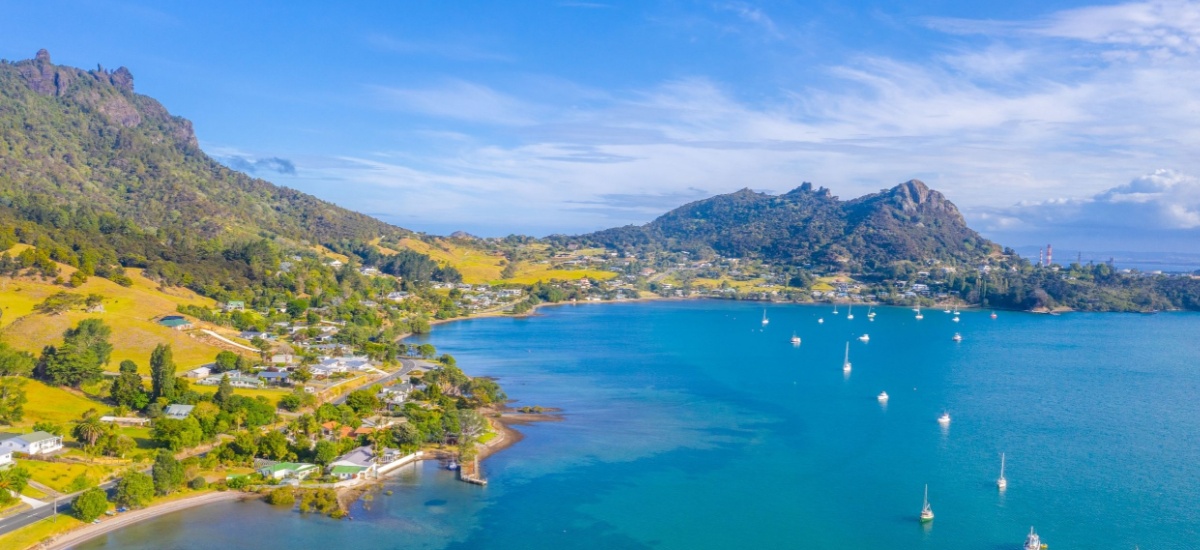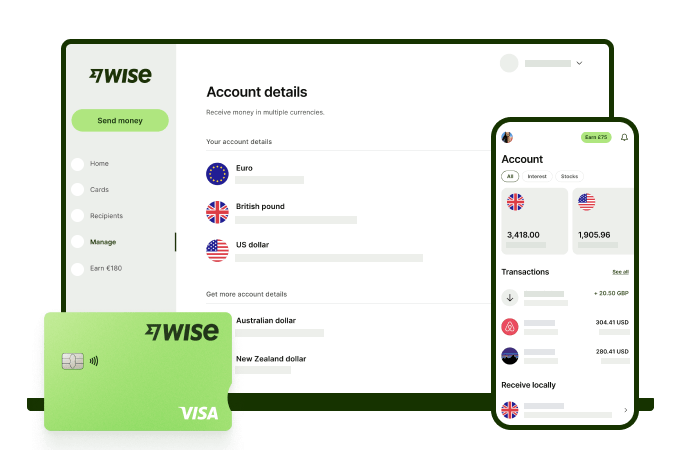How to migrate to New Zealand from Singapore: Everything you need to know
Here’s everything you need to know about moving to New Zealand from Singapore including cost of living, how to get a job, and more.

New Zealand is known for its natural beauty, high quality of life, and welcoming communities, so it’s no surprise that it has become a popular retirement destination among Singaporeans. From vibrant cities to tranquil countryside, retiring in New Zealand offers plenty of options to suit any retiree’s lifestyle and budget.
In this guide, we’ll explain how to retire in New Zealand by discussing the pros and cons, the different visa options, how much you need to retire in New Zealand, the healthcare costs, and where to retire in New Zealand. We'll also introduce the Wise account, a handy companion to make your money go further with low, transparent fees.
| Table of contents |
|---|
Many Singaporeans are wondering how to retire in New Zealand to enjoy its slower pace of life, greater access to nature, and cheaper, more spacious living options. However, like any retirement destination, retiring in New Zealand comes with both advantages and drawbacks.
| Pros | Cons |
|---|---|
|
|
When it comes to retiring in New Zealand, the government doesn’t offer a general retirement visa. Instead, retirees typically choose between two main visa options, depending on their financial situation and circumstances. Let’s take a look at both.
The Temporary Retirement Visitor Visa is designed for retirees who want a flexible, medium-term stay in New Zealand without committing to permanent residency. It also allows you to invest in the country.
Here is a summary of the key requirements, financial stipulations, and benefits for this visa:
| Category | Details |
|---|---|
| Eligibility criteria |
|
| Financial requirements |
|
| Benefits |
|
| Length of stay | Up to 2 years |
| Visa fee | 7,891 NZD (about 5,960 SGD) |
The Parent Resident Retirement Visa is for parents of an adult New Zealand citizen or resident child who wish to join them and settle permanently in New Zealand, provided they can make a significant financial investment. This visa offers a pathway to permanent residency.⁴ This is best for retirees who want to settle permanently with family and can make a significant financial investment.
| Category | Details |
|---|---|
| Eligibility criteria |
|
| Financial requirements |
|
| Benefits |
|
| Visa fee | 12,850 NZD (about 9,700 SGD) |
While retiring in New Zealand can be expensive, the cost of living is actually 44.6% lower than in Singapore.⁵ Here’s an overview of how much it costs to retire in New Zealand compared to Singapore, so you can determine whether it suits your budget.
| Singapore | New Zealand | |
|---|---|---|
| Rent - 1 bed apartment in city centre | 4,054 SGD | 1,395 SGD |
| Rent - 1 bed apartment outside of centre | 2,984 SGD | 1,162 SGD |
| Basic utilities | 205.20 SGD | 175.20 SGD |
| Transport - local ticket, one way | 2.00 SGD | 3.03 SGD |
| Meal in an inexpensive restaurant | 12.00 SGD | 18.91 SGD |
| 3-course meal for two in a mid-range restaurant | 100.00 SGD | 98.34 SGD |
| Cinema ticket | 15.00 SGD | 15.13 SGD |
How much it costs to retire in New Zealand largely depends on where you live and whether you want to buy or rent. Here’s a look at some average rental⁶ and property⁷ costs to help you decide where to retire in New Zealand.
| Location | Average weekly rent (SGD) | Median house price (SGD) |
|---|---|---|
| New Zealand | 433 | 581,400 |
| Auckland | 410 | 747,600 |
| Whangārei | 477 | 479,500 |
| Wellington | 447 | 573,900 |
| Marlborough | 379 | 566,300 |
New Zealand’s publicly-funded healthcare system offers comprehensive coverage, but only to citizens and permanent residents. However, the Accident Compensation Corporation program provides free medical care for accidental injuries to citizens, permanent residents, and temporary residents.
You shouldn’t rely on this program, though, and should invest in private health insurance to avoid paying out-of-pocket for planned or unforeseen medical expenses.
Having insurance also ensures quicker access to specialists, a greater choice of hospitals, and only costs between 3,500–6,500 SGD per year.⁸
The SGD to NZD exchange rate is generally favourable for Singaporeans, meaning your retirement funds can go further when you convert them to New Zealand dollars. However, traditional banks often offer unfavourable rates that make transfers more expensive. With Wise, you can hold multiple currencies in your main account, including NZD and SGD, and exchange them at the real, mid-market rate with low, transparent fees, helping you make the most of your money.
If you’re wondering where to retire in New Zealand, here are some good options.

Located in Northland, Whangārei is a peaceful coastal city known for its warm climate and access to stunning beaches
Best for: Retirees seeking a relaxed lifestyle close to nature
Pros
Cons

Wellington, New Zealand’s capital, offers vibrant city life, a walkable layout, and beautiful harbour views.
Best for: Retirees who enjoy culture, dining, and city amenities
Pros
Cons

New Zealand’s largest city, Auckland, offers a cosmopolitan lifestyle with top-tier healthcare and easy international connections.
Best for: Retirees looking for a modern, urban lifestyle with plenty of services and activities.
Pros
Cons

Marlborough, famous for its vineyards and sunny climate, provides a peaceful and scenic retirement setting.
Best for: Retirees who prefer a slower pace of life surrounded by nature and wine country.
Pros
Cons

The Wise account is an easy way to hold and exchange 40+ currencies, including SGD, MYR, EUR, CNY, and more. All you need to do is create a free account to get started.
With Wise, you can exchange currencies at the mid-market rate each time, with low, transparent conversion fees from 0.26% and absolutely no markups. Plus, you can order a linked Wise card for convenient spending without any foreign transaction fees, and up to 2 free ATM withdrawals to the value of 350 SGD when you're overseas. You'll even get 8+ local account details to get paid conveniently to your Wise account in SGD and a selection of other major global currencies.
What's more, you can activate Wise Interest to earn returns* on your eligible balances while keeping your money available to spend.
*Growth is not guaranteed. Capital at risk.
Sending money or making payments abroad? Wise also offers fast, low cost transfers to 140+ countries - you can track your transfer in your account and your recipient will also be notified when a transfer reaches them.
✍️ Sign up for a free account now
*Please see terms of use and product availability for your region or visit Wise fees and pricing for the most up to date pricing and fee information.
This publication is provided for general information purposes and does not constitute legal, tax or other professional advice from Wise Payments Limited or its subsidiaries and its affiliates, and it is not intended as a substitute for obtaining advice from a financial advisor or any other professional.
We make no representations, warranties or guarantees, whether expressed or implied, that the content in the publication is accurate, complete or up to date.

Here’s everything you need to know about moving to New Zealand from Singapore including cost of living, how to get a job, and more.